2025 is the third year that AI4PH has offered internships in AI4PH. For our host partners, the interns bring specialized expertise in AI and machine learning to tackle pressing public health challenges, driving transformative change, and fostering professional growth. For graduate trainees and early-career professionals the internship offers practical work-based experience within health and data organizations across Canada.
Go to the bottom of the page for FAQs.
This is an exciting opportunity to be at the forefront of AI innovation in public health and embark on a journey that will shape the future of healthcare.
The projects and desired candidate profiles are listed below. Note: Only applicants who can work in Canada will be recruited for this internship program (citizens, permanent residents, and those with valid student or work permits).
Why Apply?
- Impactful Work: Contribute to real-world projects that directly affect public health outcomes.
- Professional Development: Gain invaluable experience and expand your professional network.
- Innovation at Its Best: Apply your AI and machine learning skills to innovate in public health.
- Collaborative Community: Join a network of professionals passionate about AI and public health.
- Funding: Receive a stipend of $10,000.
- Duration: 6 months most starting in February 2025 (except Southwestern Public Health and CANUE), maximum of 15 hours per week.
1. Thunder Bay Regional Health Sciences Centre – Ontario – February 2025 (6 months), virtual.
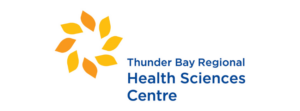
Project Description:
This project will involve integrating and cleaning multiple hospital system (organizational and patient) datasets, preparing them for further analysis and exploring the use of machine learning models. This project will also include supporting community outreach efforts with the potential to engage with healthcare leaders and stakeholders.
Desired Candidate:
- Data management and cleaning skills, with experience handling multiple datasets
- Experience with python and machine learning techniques and their application to real-world data
- Ability to plan and organize data analysis processes effectively
- Interest in healthcare improvement by working with diverse stakeholders and community engagement
- Self-motivated, quick learner, organized, and detail-oriented, with a collaborative mindset
2. Simcoe Muskoka District Health Authority – Ontario – February 2025 (6 months), virtual.
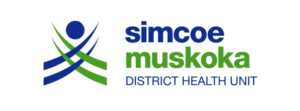
Project Description:
The project aims to assess the effectiveness of AI-driven scribe technology in improving efficiency and accuracy within public health case documentation. Leveraging lessons from AI scribe implementations in primary care, this study focuses on determining whether similar gains can be achieved in public health, where documentation tasks are extensive and time-consuming.
Desired Candidate:
- PhD or Masters student with strong foundation in public health documentation, EMRs, and health information systems, including privacy and security standards
- Experience with AI applications in healthcare, particularly scribe/transcription technologies
- Strong quantitative and qualitative research skills for data collection, analysis, and pattern identification
- Proven ability to evaluate technology implementation and efficiency metrics through pilot assessments
- Excellent communication skills for collaborating with stakeholders and conducting user interviews/surveys
- Experience with research publications & professional report writing
3. Toronto Public Health – Ontario – February 2025 (6 months), virtual.

Project Description:
This project aims to develop an AI-powered social media surveillance system for monitoring health-related risks during large public events in Toronto, specifically targeting the 2026 FIFA World Cup. The system will use natural language processing and web scraping to analyze social media data for early detection of public health events, from infectious diseases to and other health related threats (Increased injuries (venue based or due to substance use), Weather related illness (e.g. Heat-related illness in summer), Drug and alcohol related harms, including drug contaminants. The initiative will result in a validated tool that combines social media insights with traditional surveillance data to enable rapid public health responses during major events while producing academic publications.
Desired Candidate:
- Graduate student with strong expertise in natural language processing, machine learning, and AI modeling
- Experience with data governance, ethics, and responsible AI implementation in decision-making contexts
- Demonstrated ability to develop and validate large-scale data processing systems, particularly for social media analysis
- Knowledge of or strong interest in public health surveillance and health informatics (public health experience is an asset but not required)
4. Saskatchewan Polytechnic’s Center for Health Research Innovation and Scholarship (CHRIS) – February 2025 (6 months), virtual.
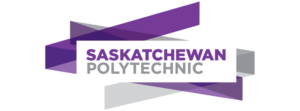
Project Description:
This internship focuses on leveraging AI to enhance health literacy and social support for older adult newcomers in Regina and Saskatchewan through targeted research and community engagement. The six-month position involves collaborating with health researchers, community organizations, and AI experts to assess and design digital health tools while organizing workshops and training sessions. The role combines practical research skills with community outreach to improve digital health access and social integration for older adult newcomers.
Desired Candidate:
- Graduate student or early-career professional with background in public health, digital health, or related fields
- Strong research capabilities including literature review, environmental scanning, and community-based research methods
- Experience working with diverse communities, particularly older adults or newcomer populations
- Excellent project coordination and communication skills for organizing workshops, developing materials, and engaging with multiple stakeholders
5. New Brunswick Institute for Data, Research, and Training – February 2025 (6 months), virtual.
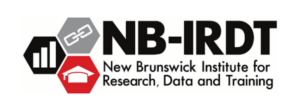
Project Description:
The purpose of this project is to undertake multi-dimensional modeling of dynamic health trajectories that focuses on measuring the impacts, both positive and negative, of healthcare interventions in chronic disease management. By utilizing advanced tools such as Artificial Intelligence (AI) and deep learning, this process aims to analyze complex, time-varying health data to improve patient outcomes and inform clinical practices. As a first phase, there will be a focus on a key question in cancer therapy – determinants of response to immunotherapy, such as modern immune checkpoint inhibitors. The organization has access to a large cohort of lung cancer and triple-negative breast cancers treated with this class of therapy that have been profiled with genomic and proteomic technologies. Using this data in combination with administrative data can help pinpoint critical gene-environment effects and potentially hidden drug-drug interactions.
Desired Candidate:
- PhD/Master’s in Computer Science, Biostatistics, or Health Informatics with strong background in AI and machine learning, particularly deep learning architectures (RNN, LSTM, CNN).
- Proven experience in healthcare data analysis, including handling large-scale datasets and integrating data from multiple sources with understanding of health data privacy regulations.
- Knowledge of genomic and proteomic data analysis, with specific experience in cancer research and immunotherapy preferred.
- Proficiency in Python or R, with expertise in implementing machine learning models and data visualization techniques.
6.

Project Description:
Fraser Health Authority’s Population and Public Health program seeks to enhance their policy analysis capabilities by implementing an LLM-Powered PESTLE-O framework for systematic policy scanning and analysis. This innovative project aims to streamline the monitoring of local to global public health developments, enabling more efficient identification of trends and policy opportunities. The pilot project will focus on developing an automated scanning system that can process, summarize and analyze information from multiple credible sources, supporting evidence-based decision-making. The successful implementation will help the Planning, Evidence, and Policy team measure and benchmark initiatives and programs to established frameworks.
Desired Candidate:
- Graduate degree in Artificial Intelligence, Machine Learning, Computer Science, or related field
- Strong expertise in developing and implementing AI/ML solutions, particularly in:
- Natural Language Processing (NLP)
- Text analysis and summarization
- Automated information extraction
- Experience building scalable AI systems
7. Toronto Invasive Bacterial Diseases Network (TIBDN)– Ontario – February 2025 (6 months), virtual.
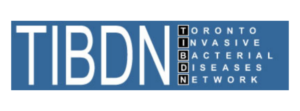
Project Description:
Curating a database of global vaccination policies that will be used by LLMs to determine feasibility for the following tasks: policy recommendations, guideline summaries, and comparative analysis on approaches.
Desired Candidate:
- PhD or Master’s degree in Public Health, Epidemiology, Health Policy, or a related field.
- Capable of curating information from official sources and academic literature.
- Ability to work independently and manage time effectively to meet project deadlines
8. Institute for Clinical Evaluative Sciences (ICES) – Ontario – February 2025 (6 months), in person.

Project Description:
At ICES researchers have the ability to train ML models on ICES data for their specific project. Often researchers request transferring their models outside of the ICES secured analytic environment for implementation in different settings, sharing with other institutions or even commercialization. It’s important to define appropriate parameters for safe egress of trained models. It is known that overfitted models have a higher risk for memorizing underlying data elements which increases the risk of reverse engineering to reconstruct the underlying data.
Desired Candidate:
- PhD or Masters with expertise in AI or ML and working with public/population health data.
- Expertise in data governance would be an asset.
- Intern MUST be located in Ontario
9. Statistics Canada – Pan Canadian – February 2025 (6 months), in person.
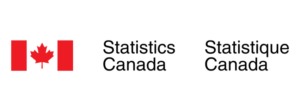
Project Description:
Join Statistics Canada’s Health Statistics Branch – Innovation and Envisioning Section as an intern who will work on pioneering AI applications for population, public and health system data. You will be able to access extensive, unique datasets to develop cutting-edge solutions across a variety of population health concepts.
Projects will be decided based on intern’s skill and interest but range across the following themes:
- Computer vision for medical and geospatial imaging
- Machine learning for health survey analysis and classification
- Synthetic health data generation
- Large language models for health administrative data
- Work directly with our direct health measures team on high-impact projects that shape Canada’s health analytics landscape.
Desired Candidate
- Masters or PhD student specializing in computer vision, predictive modeling, generative AI, LLMs, or synthetic data
- Strong AI/ML technical foundation with demonstrated expertise in at least one area
- Interest in applying AI/ML skills to public health challenges
- Collaborative mindset and enthusiasm for learning population health concepts
- INTERN must be located in the following geographic regions as they are expected to work from the office for 40-60% of work hours: National Capital Region (Ottawa), Halifax, Montréal, Toronto, Winnipeg, Edmonton and Vancouver
10. Southwestern Public Health – Ontario – April 2025 (6 months)
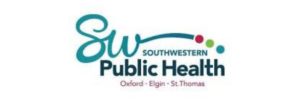
Project Description:
This internship project aims to build on existing efforts that have explored staff perceptions of AI integration within the organization. The intern will support work to assess readiness for AI adoption at the organizational level. Additionally, the project will include developing educational workshops and resources to enhance staff understanding and build skills related to AI. The intern will also identify practical opportunities to implement AI tools by analyzing organizational workflows and needs, ultimately supporting the development of a strategic roadmap for AI integration to enhance public health outcomes.
Desired Candidate:
- A PhD or Master’s student with a strong foundation in AI and the ability to effectively educate and build AI skills among non-technical stakeholders.
- The ideal candidate should possess excellent analytical and problem-solving abilities, along with experience in developing data collection methods.
- Familiarity with assessing AI deployment levels and expertise in human-computer interaction would be valuable assets.
11. The Canadian Urban Environmental Health Research Consortium (CANUE) – Pan- Canadian – May 2025 (6 months)

Project Description:
For this internship, we aim to explore the use of AI/ML for developing North American ensemble air pollution environmental exposure models. Specifically, we are looking to combine our existing data holdings (visible via canuedata.ca/metadata.php) with newly released air pollution datasets (e.g. TEMPO) to provide state-of-the-art predictions of air pollution concentrations on a continental scale. This newly developed dataset will then serve to conduct research into the environmental determinants of dementia and aging-related cognitive decline via the GECC project.
Desired Candidate:
- Graduate-level students or higher (Masters, PhD, Postdoc).
- Background and/or experience associated with mapping and physical geography (e.g. atmospheric science, remote sensing, etc.).
- Experience in both the public health / epidemiology and geographical disciplines is an asset for this internship.
- Strong programming and database skills are essential for success at CANUE, though plenty of support is available.
- A strong desire to complete a project from end-to-end is critical
- Interested in candidates who can apply cutting-edge methods in AI/ML.
Applications are closed, will there be another opportunity to apply for an internship?
⇒ Yes, the next round of internships will take place in 2026. Please follow us on X @Ai4PH and LinkedIn and subscribe to our newsletter to hear about any future AI4PH opportunities.
I don’t have a work permit for Canada, can I still apply?
⇒ No, only individuals with the legal right to work in Canada, including Canadian citizens, permanent residents, and those holding valid Canadian study or work permits can apply.
I am an international student studying in Canada with a study permit that allows off-campus work (typically up to 24 hours per week). Can I apply?
⇒ Yes. You are eligible for this internship.
I was studying in Canada, and have now returned to my home country/travelling abroad, can I still apply?
⇒ No, applicants must be physically located in Canada during the internship period; we cannot accommodate candidates based outside of Canada, even for virtual positions.
The internship is far from where I reside, can I do the internship?
⇒ Yes, some of the internships are fully remote. Others may require on-site attendance or offer a hybrid model. Please check the posting.
I am not available for 6 months, is there some flexibility for shorter terms or part-time work?
⇒ Yes and no. Internships are generally designed to last six months with a part-time commitment (10-15 hours a week). However, there may be flexibility depending on the host organization’s needs and the intern’s availability. Some organizations might accommodate shorter durations (such as 3-4 months), especially for students who are balancing academic commitments. If shortlisted, your circumstances will be discussed prior to interview.
Is the internship paid, and what is the compensation structure?
⇒ Yes, the internships are paid positions. A maximum stipend of $10,000 will be offered for the duration of the internship.
How can I apply?
Submit your application through the link on this page by December 31 deadline.
Is there an advantage if I apply early?
⇒ No, there is no advantage. All eligible applications will be reviewed after the December 31st.
When will I know if my application has been successful?
⇒ All succesful applications will be notified by the end of February.
I am unable to work regular 9-5 office hours, is there flexibility regarding work hours?
⇒ Yes and no. The hours are determined by the partner and their requirements. There will likely be meetings within ‘office hours’, while other work is asynchronous. If shortlisted, your circumstances will be discussed prior to interview.
I am no longer a student can I still apply?
⇒ Yes. There are opportunities for both early-career professionals interested in transitioning into roles within public health organizations and graduate students. Some organizations may require interns to be enrolled in registered graduate programs, this varies by organization. If shortlisted, your circumstances will be discussed prior to interview.
Program Lead: Senthujan Senkaiahliyan
Email: ai4ph.dlsph@utoronto.ca
Apply Now! The application portal is open. Don’t miss this chance to be part of a transformative experience.











